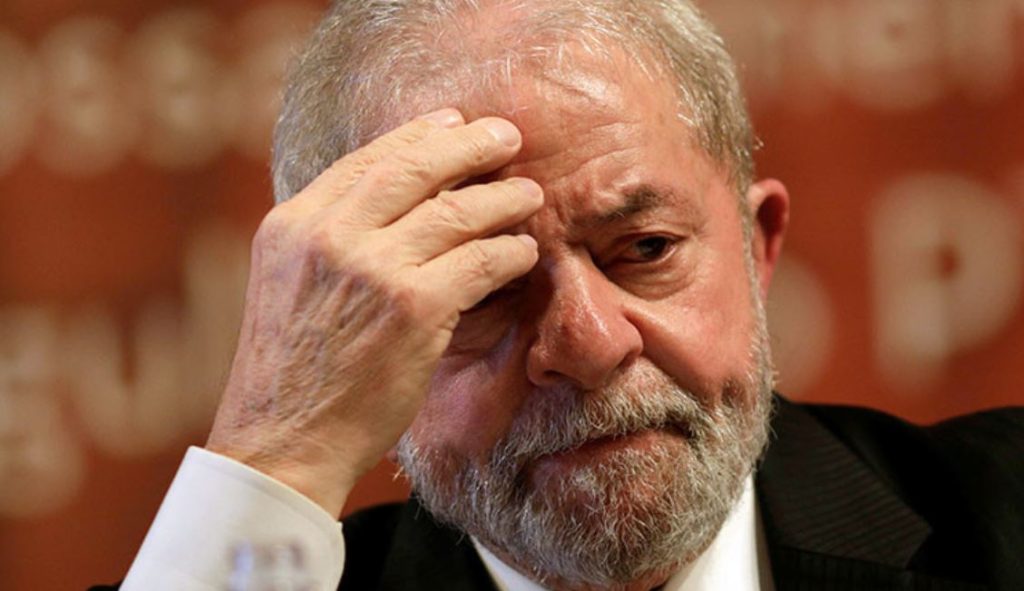Every society reinforces its identity with great symbols that provide clarity and direction. These symbols are found in special monuments, such as El Cristo del Corcovado, in an entire city, such as Brasilia, in the images of Aleijadinho’s Prophets, the statues that adorn the public squares, and other locations. Street names evoke the memory of writers, poets, artists: figures lodged in the collective consciousness. In the political world, Getulio Vargas’ predominance cannot be denied. He is one of the greatest political leaders in our history, who gave Brazil a new direction and brought her into the modern world, particularly benefiting the working class.
The figure of Luiz Inacio Lula da Silva belongs in this line. No one can deny his charisma, recognized in Brazil and around the world. The strength of his charisma lies in that he comes from the forgotten classes, abandoned by the elites, who have always controlled the State, with policies that only benefited the elites, always against the Brazilian people. The elites never had a program for Brazil; they only looked after their own well being.
Suddenly, Lula emerged on the Brazilian political scene, endowed with an exceptional charisma, and representing the victims of the Brazilian tragedy, characterized by the world’s greatest social inequality-injustice. Even though he was forced to accept the logic of the perverse capitalist economy, exclusive and therefore anti-democratic by nature, Lula managed to open paths that benefited millions of Brazilians, starting with the Programa Hambre Cero (Zero Hunger Program) and followed by several other social policies.
Those who call him a populist and social worker know nothing about hunger, that Gandhi affirmed is “an insult, because hunger humiliates, dehumanizes and destroys body and spirit; hunger is the worst murderer that exists.” Whenever anything is done to benefit the neediest, the wealthy elites and their allies criticize it as populism by do-gooders, if they cannot use the poor for their political ends. They forget what is basic in any society that is minimally civilized: the first task of the Government is to guarantee and protect the life of the people and to not force them into the exclusion and misery that victimizes the children and makes them face an early death. The wave of hatred and slander that arises in the country is born of the spirit of the heirs of La Casa Grande: their former contempt for the slaves is now directed at the poor, the Blacks, especially poor Black and other women.
With his inclusive programs, Lula not only satisfied the hunger and other needs of some 40 million people. He returned to them that which is most important: their dignity, and the awareness that they are citizens, and the sons and daughters of God.
The true leader serves a cause that goes far beyond himself. The son of Northern poverty, Lula offered himself as President, so that no Brazilian would go hungry. How many times I personally heard him say that the sole meaning of his life and his politics was to give centrality to the poor and extract them from the hell of poverty. Once, coming with him in a car from San Bernando, passing through a lonely place, Lula had the car stop, and confessed to me: “many times, leaving the factory, I would sit here on this grass and cry because I had nothing to take to my brothers, who were at home hungry”. Lula, as Head of State, wanted to create the conditions so that no one would have to cry from hunger.
Lula was and is a leader who serves this cause. A charismatic leader who serves speaks to people’s core. Hence is born the enthusiasm and attraction that all leaders elicit. How many times, in my walks by the communities of the periphery, I hear this phrase: “Lula was the only one who thought of us, the poor, and did good things for us”. He has limitations that are part of the human condition and has even made political mistakes. But never could be said that he abandoned the basic purpose of his life and his political action. This can be seen in the fact that he always spent Christmas with the mendicants who are cared for by Padre Julio Lancelotti, under a bridge in Sao Paulo. There he could be with his brothers and sisters of destiny, and show them solidarity and companionship.
The viciousness of those who want a Brazil with privileges for the few has managed to throw him in jail. But the dream of a Brazil that is rich because she does not have people living in misery can never be jailed. Lula with his dream is immortal and he is, as the Jewish tradition puts it, “a man of justice among nations”.
These few examples show how someone can be a political leader who serves the people and arouses in them the same spirit of solidarity and constructive service.
This attitude speaks of a different Brazil, one that we want and deserve, encouraged by representatives who make of politics, as Gandhi said, “a loving gesture towards the people and a caring for all that is common.” Lula belongs in that honorable tradition.
Leonardo Boff
Eco-Theologian-Philosopher, Earthcharter Commission

